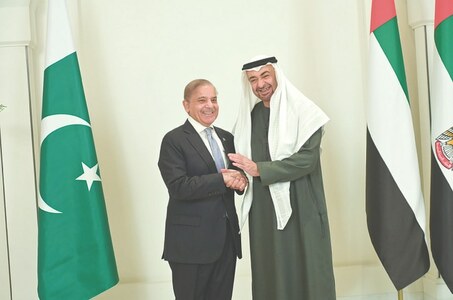CANCUN (Mexico): Delegates attending the UN Climate Change Conference 2010, currently being held in Cancun, Mexico, describe the atmosphere as one of cautious optimism. Expectations have been lowered since the disappointing failure of the Copenhagen Summit held a year ago in 2009 when world leaders could not agree on a legally binding treaty to curb carbon emissions causing global warming.
As the first week of the 12-day conference draws to a close, negotiators say that key questions such as how to get developed countries to set targets limiting emissions and whether the Kyoto Protocol has a future remain unanswered. However, a draft text (for a possible agreement) has been prepared by the negotiators.
According to WWF-International, “The draft text provides a good basis for negotiations. We now look to governments to accept the text, so we can move out of process and into the substance of the negotiations.”
Over the weekend, ministers from over 190 countries signatory to the nearly universal United Nations Framework Convention on Climate Changes arrived in Cancun to participate in the final week of talks.
Pakistan’s Minister for the Environment, Hameedullah Jan Afridi, is also due to arrive before Monday along with a couple of parliamentarians whose names have been kept secret for now. “The government has not even told us who they are bringing to Cancun along with the minister,” said Ali Sheikh, head of an Islamabad-based NGO, LEAD-Pakistan who have flown in officials from the forest department, the provincial disaster management departments and ministry of environment in order to build the capacity of Pakistan’s delegation in these global negotiations.
Previously, the negotiations have been the exclusive preserve of a handful of officials from the Foreign Office. Pakistan says that the Foreign Office must represent Pakistan in any global negotiations. Pakistan’s lead negotiator is also a director in the ministry of foreign affairs.
The Pakistani delegation had earlier decided to put a good fight in Cancun for a change in the definition of vulnerability, given the backdrop of the massive flooding that hit Pakistan this year, making it one of the most vulnerable countries in the world to climate change. This issue seems to have been put on the backburner as the focus has now shifted to finance.
“We are currently working on finance within the G-77 group to get a unified position,” said a member of Pakistan’s negotiating team.
New in the text which will be mulled over by the ministers in the week to come, is the inclusion of a process to “review the needs of developing countries”.













































Dear visitor, the comments section is undergoing an overhaul and will return soon.